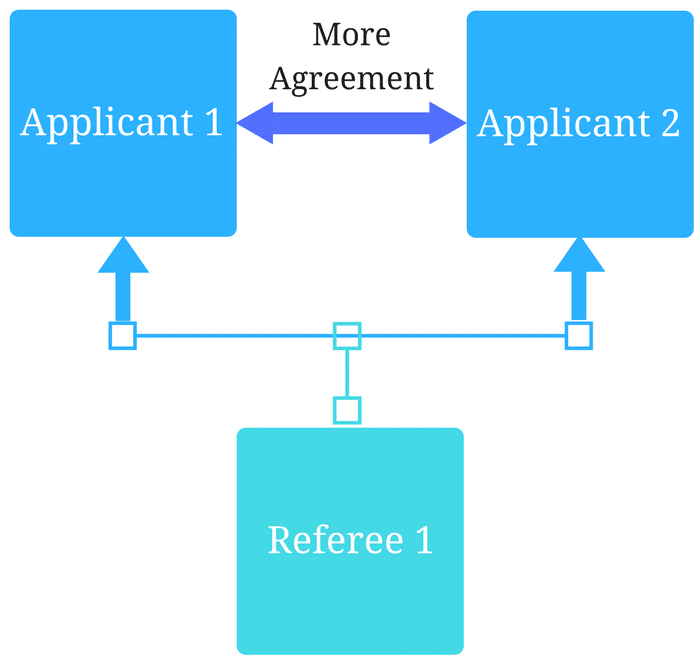Understanding Casper: How Are Casper Tests Rated?

November 28, 2025
Casper is an open-response situational judgment test that measures social intelligence and professionalism, giving higher education program applicants the chance to show how they’d navigate challenging, real-world scenarios.
Casper assesses personal and professional skills, helping programs make more fair admissions decisions than solely relying on traditional tools like GPAs or knowledge-based exams that don’t paint the full picture of an applicant’s abilities.
We understand that university admissions is a high-stakes and stressful process for many applicants, and they may have a lot of questions about Casper. Here is what we want every applicant to know about how the Casper test is scored.
How are Casper tests scored?
Each applicant’s Casper test is evaluated based on their typed and video responses. A single combined score is calculated and shared with the programs on the applicant’s distribution list.
Who evaluates my Casper test?
Every Casper response is rated by a trained, certified, and monitored human. All raters complete a comprehensive training program that includes interactive exercises, knowledge checks, practical examples, and engaging activities designed to prepare them for real scenarios.
Rather than having one rater score an entire test, each scenario is scored by a different rater. This approach prevents the halo effect, where an early impression can influence traditional assessments.
Raters are located in the same country as the programs that use the scores, ensuring evaluations align with local context and expectations. All responses are anonymized before evaluation: raters see only your typed or video answers, with no personal information beyond what is shared in the response.
Is AI used to rate Casper scores?
No. Casper does not use AI for scoring, rating, or evaluating Casper responses. An applicant’s average score is based on scores assigned by humans.
What is the scoring methodology for Casper?
Each human rater assesses a specific scenario along with all relevant background information and instructions. They review multiple responses from different applicants for that scenario, with no rater evaluating the same applicant more than once to ensure fair scoring. Raters focus on the substance and quality of responses rather than grammar or spelling, assessing thoughtfulness, judgment, and communication.
Once all responses are evaluated, the individual ratings are averaged. These scores are then standardized to show each applicant’s relative standing within the overall applicant pool in the same test instance.
Understanding how Casper is scored can help applicants approach the test with confidence. By focusing on thoughtful responses that explain their reasoning and justify their approach, applicants show exactly what programs are looking for—skills that matter both in school and beyond.
Resource Guide
Are you looking for more information about the Casper test and scoring? See below for a list of helpful resources.
- Holistic Success Show: How Casper Scores Highlight Applicant Strengths
- Informational Article: How is the Casper Test Scored and Evaluated?
- Peer-Reviewed Article: Evaluating factors that impact scoring an open response situational judgment test: a mixed methods approach
Related Articles

How interviews could be misleading your admissions...
Most schools consider the interview an important portion of their admissions process, hence a considerable…
Reference letters in academic admissions: useful o...
Because of the lack of innovation, there are often few opportunities to examine current legacy…
